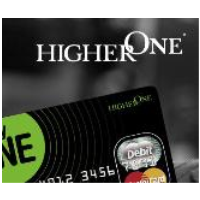Debit Card Company Brings High Fees to Higher Education

Most adults think twice before they give their children at college a debit card. Fortunately, debit card companies can relieve parents of the burden of educating their children about debt by marketing their products, in cooperation with schools, directly to students.
In California, the financial institution most likely to be servicing the campus is Higher One Holdings, Inc., which has contracts with half of the state’s community colleges and a number of other institutions of higher learning. Its crash course in debit cards includes teaching students the perils of multiple fees, the danger of privacy loss and the effectiveness of aggressive marketing.
A report by the U.S. PIRG Educational Fund says Higher One is the industry leader nationwide in marketing its bank products to students. More than 520 schools with 4.3 million enrollees participate. The deals Higher One offers to students, according to the report, feature weak consumer protections with limited options.
Colleges contract with financial institutions like Higher One because they save money and avoid the hassle of handling the administrative chores associated with processing aid. Students are sent debit cards and can open Higher One accounts to tap their money—whether it’s from a scholarship, grant or loan—for any number of purposes: tuition, housing, books, groceries, etc. Some students who couldn’t otherwise open a bank account can open one of these.
Financial institutions, which claim that more than 70% of eligible students eventually use their cards, like the deal because transaction fees are charged at every turn, from swipe fees to foreign ATM charges and quite a few in between. They say they are up front with their fee structure and that it is sensible. Critics find the fees exploitive and duplicitous.
The clientele isn’t necessarily just students using cards to access financial aid. At least some colleges give Higher One identification and contact information for all students, regardless of their aid status, win which case all the students get card offers.
Higher One made $142.5 million in 2011 from debit card fees, about 80% of its total revenues. Fees include transaction, overdraft, interchange and ATM. Lower-income students are the most likely to use the service.
–Ken Broder
To Learn More:
More Calif. Colleges Contract with Debit Card Firm Criticized for Fees (by Erica Perez, The Bay Citizen)
The Campus Debit Card Trap (by Rich Williams and Edmund Mierzwinski, U.S. PIRG Education Fund) (pdf)
Some Students Grumble about Higher One’s Debit Card Fees (by Ann Carrns, New York Times)
Letter from Congress (Senator Richard Durbin and Representative George Miller)
- Top Stories
- Controversies
- Where is the Money Going?
- California and the Nation
- Appointments and Resignations
- Unusual News
- Latest News
- California Forbids U.S. Immigration Agents from Pretending to be Police
- California Lawmakers Urged to Strip “Self-Dealing” Tax Board of Its Duties
- Big Oil’s Grip on California
- Santa Cruz Police See Homeland Security Betrayal in Use of Gang Roundup as Cover for Immigration Raid
- Oil Companies Face Deadline to Stop Polluting California Groundwater





